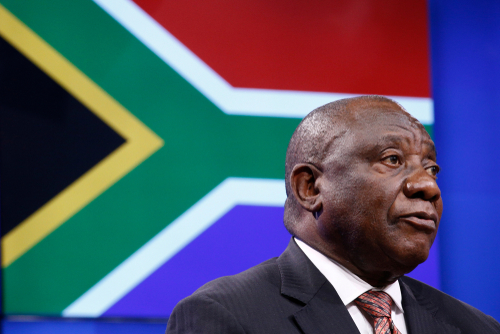South African president Cyryl Ramaphosa will soon sign the country’s National Health Insurance (NHI) bill into law.
The bill which was passed by both the National Assembly and the National Council of Provinces (NCOP) last year, intends to provide free healthcare at the point of care for all South Africans, whether in public or private health facilities.
One of the aims of the NHI is to narrow the gap between the country’s rich and poor in terms of standards of healthcare.
But there could be some negative impact on private health insurance providers, as the government said: “South Africans will no longer be required to contribute directly to a medical health scheme to get quality health care.”
Although not confirming when the bill would be signed or come into effect, Ramaphosa (pictured) said: “After many years of research, debate and preparation, South Africa is getting ready to implement the National Health Insurance.
“The NHI bill will be implemented incrementally, responsibly and sustainably,” he said on Thursday (15 February).
The objective of the NHI Bill is to provide universal access to quality healthcare for all South Africans as enshrined in the constitution, which recognises healthcare as a fundamental human right.
Ramaphosa said: “The Constitution places upon us a responsibility to achieve the progressive realisation of access for all to health care. The NHI is a major development towards that goal.”
The promise that the NHI will soon come into effect comes in the build-up to the country’s general election, expected in May.
The NHI aims to narrow the gap between the rich and poor in terms of standards of healthcare.
“The Bill has arrived at my desk. I’m going through the bill. I’m looking for a pen.” Ramaphosa told a joint sitting of parliament earlier this month.
May hit insurance providers
But once implemented, the NHI could affect some medical aid schemes private health insurance providers.
The government said that the NHI will not replace medical aid schemes and that members will be free to continue with their medical schemes if they still wish to.
But it notes in section 33 that “When the NHI is fully implemented the role of medical schemes will change as they will provide cover for services not reimbursable by the NHI Fund.”
This has been a main sticking point for several providers, including Discovery Health, which operates as Vitality in the UK, as they believe their viability will be threatened.
Discovery Health is South Africa’s largest medical scheme administrator and managed care provider, managing more than 39% of the total membership of South African medical schemes, according to Discovery.
Discovery outlined some of its concerns about the NHI on its website.
“Our strong view is that substantially limiting the role of medical schemes would be counterproductive to the NHI because there are simply insufficient resources to meet the needs of all South Africans,” it said.
“Limiting people from purchasing the medical scheme coverage they seek will seriously curtail the healthcare they expect and demand.
Discovery added: “We also believe that limiting the rights of citizens to purchase additional health insurance, after they have contributed to the NHI, would be globally unprecedented and inappropriate.
“In virtually every other country with some form of NHI, citizens are free to purchase additional private health insurance cover, including cover that overlaps with services covered by the national system.
“A restriction on choice of medical scheme cover is not dissimilar to limiting the rights of citizens to purchase private education for their children or private security, on the basis that the public system already provides state schooling and security services.”
South African constitution
The South African constitution states that “everyone has the right to have access to health care services… the state must take reasonable legislative and other measures, within its available resources, to achieve the progressive realisation of these rights and no one may be refused emergency medical treatment.”
It said that the public health fund will be created with adequate resources to plan for and effectively meet the health needs of the entire population, not just for a select few.
“The ultimate goal is to achieve Universal Health Coverage (UHC),” it says.
It adds that “the NHI fund will cover South Africans of all races, rich or poor and legal long-term residents.
“There will be one pool of healthcare funding for private and public healthcare providers alike.
“The cost of our healthcare system, which is currently the most expensive in the world, will be reduced.
“When people visit healthcare facilities, there will be no fees charged because the NHI fund will cover the costs of people’s medical care in the same way that medical aids do for their members.”
The NHI Fund will be funded from general taxes, contributions of people earning above a set amount, and monthly contributions made by the employees to the fund.






